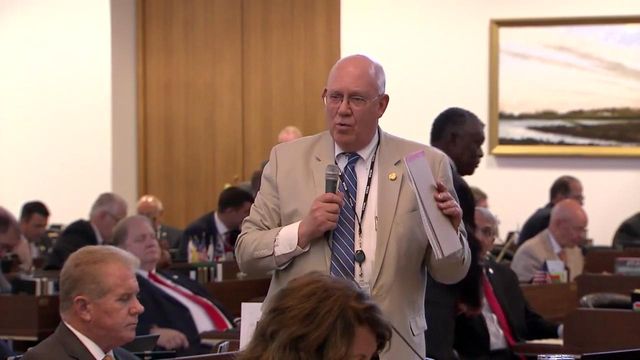Lawmakers OK town charter schools for first time
By a 64-53 vote, House lawmakers gave final approval Wednesday to allowing four towns in Mecklenburg County to open charter schools under town management.
Posted — UpdatedIt's the first time any municipality in North Carolina has been allowed to pay for and manage a charter school. Charters are otherwise run by independent nonprofits.
Rep. John Bradford, R-Mecklenburg, said the bill is needed because, despite rapid growth in Charlotte's suburbs, northern Mecklenburg County is slated to receive no new schools under the county's recently approved $985 million school construction bond.
Meanwhile, said Rep. Bill Brawley, R-Mecklenburg, public schools in the area are overcrowded, and the independent charter schools in the area have thousands of children on their waiting lists. Local leaders had tried repeatedly, he said, to negotiate with the Charlotte-Mecklenburg Schools board for more capacity in the area, but those talks were unsuccessful.
"This has been a consistent problem for 30 years," Brawley said. "I suspect, had there been better cooperation between the town and the school board, this bill would not have been necessary.
"This is not an attack against CMS. My towns have continued to partner with CMS," agreed Bradford. "At the same time, my towns want to make sure they have an option, and this bill gives them that option."
Brawley likewise stressed the legislation only provides an option for the four towns. "It does not require anyone to do anything," he said.
Democrats who opposed the measure argued that it makes a fundamental change in the state's taxation policy by allowing towns to levy taxes to pay for schools, and they warned it would politicize education at the schools and make town council elections more political as well.
Several cited examples like Chicago and Washington, D.C., to highlight the problems municipal school management can cause.
"This is a bill that opens up precedent that some of your towns will come to you and want to do in the future," said Rep. Graig Meyer, D-Orange. "Do you want your cities to run schools?"
Rep. Kelly Alexander, D-Mecklenburg, called the bill "a wolf in sheep's clothing."
“What we are on the precipice of doing is to increase segregation in our school systems," Alexander said.
"Everything old is new again," agreed Rep. Amos Quick, D-Guilford, recalling efforts in Mecklenburg County to avoid desegregation in the 1950s and 1960s.
Rep. Scott Stone, R-Mecklenburg, complained about those comments.
"It’s skirting the line, frankly, of questioning the integrity of some of the members of this body," Stone said.
"To point things out is not to impugn the integrity of anyone," Quick responded. "I’m not arguing motives. I'm highlighting impact."
"Our local governments are starving for ways to raise revenues, especially in rural areas of the state," Carney said. "I just wish we would back up and remember what we are doing and how we do it here."
Because the measure is a local bill, it became law immediately upon the House vote and does not go to Gov. Roy Cooper.
Related Topics
• Credits
Copyright 2024 by Capitol Broadcasting Company. All rights reserved. This material may not be published, broadcast, rewritten or redistributed.





